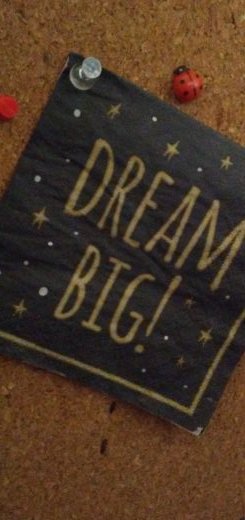Don’t Fear the Big “R” by Nevada McPherson
 Let’s welcome back monthly columnist Nevada McPherson as she shares with us “Don’t Fear the Big “R” Enjoy!
Let’s welcome back monthly columnist Nevada McPherson as she shares with us “Don’t Fear the Big “R” Enjoy!
***
Writers write because they must, and it helps a great deal to be unswervingly optimistic as one writes draft after draft in an attempt to make the work better with each successive try.
Nevertheless, every so often a draft is let loose on the world, or at least an agent, editor, or very honest friend who holds nothing back. Perhaps the writer can then rejoice in a new novel or short story being accepted, or an exciting writing assignment that’s forthcoming.
On the other hand, a writer may get a letter of rejection, a dismissive e-mail, or a barrage of biting (but very possibly constructive) criticism. Either way, the show must go on, and the stories must still be told, so writers have to learn how to deal with rejection.
The best way to deal with it? Don’t fear it; expect it!
Now I don’t mean to do this in a negative, self-defeating way, but in a tough, liberating way. When you send off that piece of work to that decision-maker or critic, don’t anticipate the result, just keep writing. If the outcome of your submission is positive—great! If it isn’t, learn from it what you can, and move on. Easier said than done? Of course it is!
That’s why you have to preemptively learn to deal with the big R.
Like fear itself, it’s ever present and a fact of life for creative folks.
Sometimes it’s just “not a good fit” and for others, it’s just not their cup of tea.
If you’ve ever read the rejection letters that famous authors have gotten early in their careers, even for what would eventually be considered their greatest works, you can guess what would have happened if they had taken those stinging words to heart: we wouldn’t have some of our best literature.
Take rejection not as a rejection of you as a writer but as a challenge to write more and to be better. Let it make you stronger and more resilient; allow it to deepen your persistence and sense of purpose.
No one likes rejection but it can be useful to you. Allow it to make you take a closer and more critical approach to your work, to sharpen and clarify your work going forward.
Perhaps it can help to think of it as a bracing splash of cold water that will not dampen your passion but that will awaken you to new ideas, approaches, and possibilities.
You’ve probably heard the phrase “take it with a grain of salt”?
Salt can be a purifying and clarifying thing!
If a grain of sand helps the oyster to produce a pearl, let all that salty/grainy feedback and/or criticism help you to produce some pearls of your own.
If you think of your writing journey as a hero’s journey, that ancient storytelling pattern famously examined by author Joseph Campbell and more recently by Hollywood executive Christopher Vogler in his book The Writer’s Journey, it helps to remember that no hero’s journey is complete without enemies, allies, tests, and a “supreme ordeal.”
You can’t get from where you are to where you really want to go without those moments, where making the decision to go forward in the face of daunting circumstances makes all the difference and leads ultimately to “the return with the elixir” — something that you learn that you can share with the larger community for the greater good upon completion of your journey.
So plow through the difficulty of rejection and forge it into something positive that you can use. You can use it — for the betterment of your work, and for the greater good!
***
ABOUT THE AUTHOR
 Nevada McPherson lives with her husband Bill and rescue Chihuahua, Mitzi in Milledgeville, Georgia, where she is an associate professor of Humanities at Georgia Military College. Nevada received a BA in English/ Creative Writing and an MFA in Screenwriting from Louisiana State University-Baton Rouge. She has written over a dozen feature-length screenplays, plays, short stories and the graphic novels, Uptowners and Piano Lessons. Queensgate, the sequel to Uptowners, is her third graphic novel. For more information, visit www.nevada-mcpherson.com.
Nevada McPherson lives with her husband Bill and rescue Chihuahua, Mitzi in Milledgeville, Georgia, where she is an associate professor of Humanities at Georgia Military College. Nevada received a BA in English/ Creative Writing and an MFA in Screenwriting from Louisiana State University-Baton Rouge. She has written over a dozen feature-length screenplays, plays, short stories and the graphic novels, Uptowners and Piano Lessons. Queensgate, the sequel to Uptowners, is her third graphic novel. For more information, visit www.nevada-mcpherson.com.


 Click to tweet: “So plow through the difficulty of rejection and forge it into something positive that you can use.”
Click to tweet: “So plow through the difficulty of rejection and forge it into something positive that you can use.”




